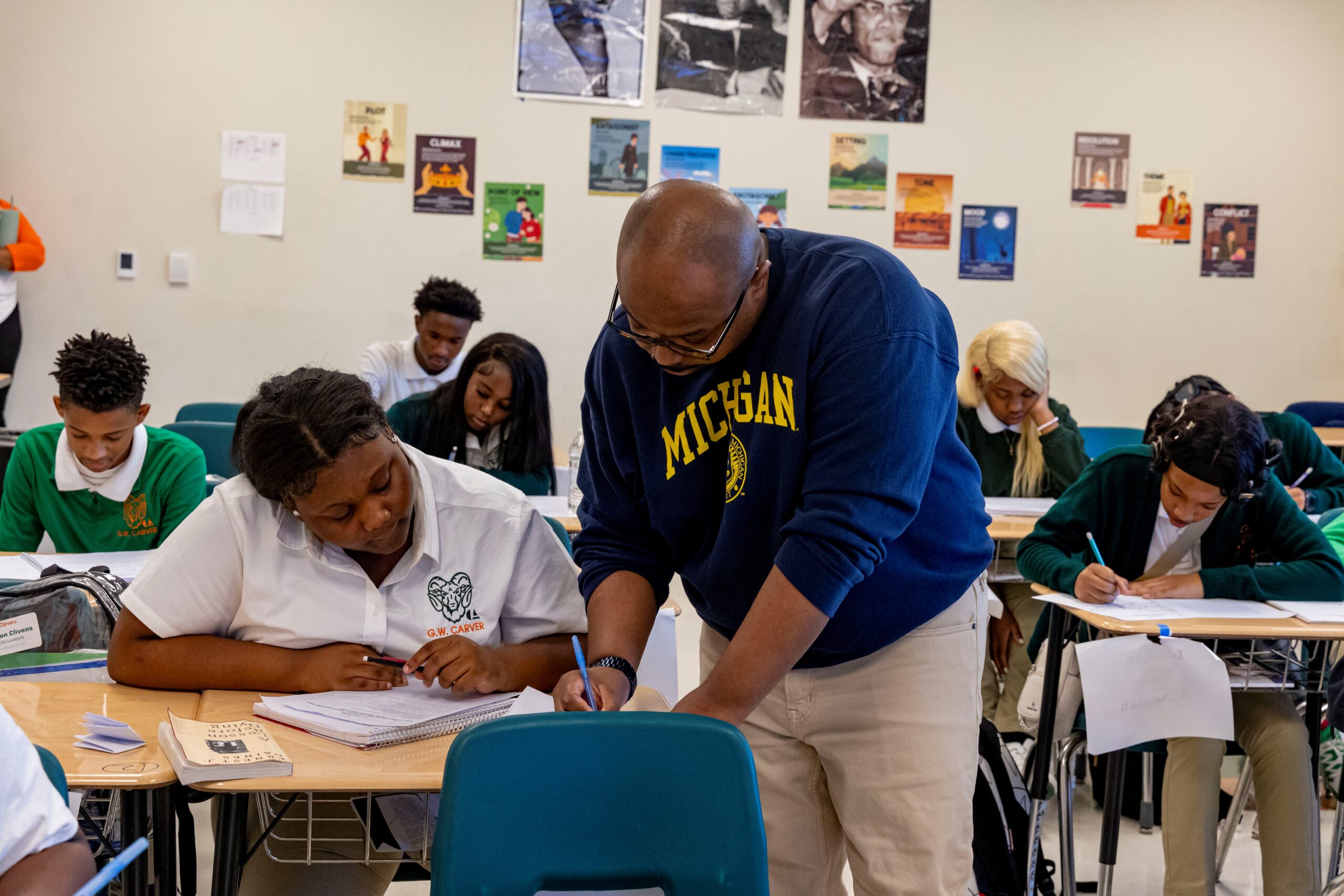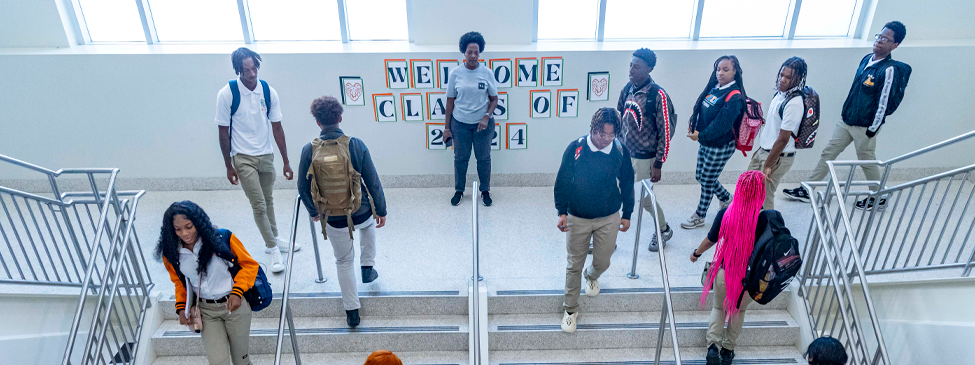As schools nationwide continue to grapple with severe staffing shortages, the urgency to reimagine the teaching profession is palpable. Teachers yearn for more than just a job—they crave positive work environments that foster support and growth opportunities, all while earning fair compensation.
Recently, TNTP unveiled the Workforce Design Framework, a holistic approach intended to bring together the twin engines of educational progress: academics and talent. The framework empowers school and system leaders to ensure that every educator, especially those from underrepresented communities, can thrive in sustainable, well-compensated, long-term careers—ultimately enabling them to give their absolute best to students.
Collegiate Academies, a charter school network in New Orleans and Baton Rouge, is boldly putting the framework into action, placing adult culture at the heart of their talent strategy. Their north star, that the culture among adults is the driving force behind student success, guides every decision related to talent. The success they’ve had is proof positive that a well-thought-out talent strategy, intentionally integrated with academic strategy leads to stronger outcomes for students.
Articulating Beliefs and Mindsets
The Workforce Design Framework asks schools to build a rich understanding of their student and educator data to identify current and future staffing needs. It’s not merely about identifying possible vacancies; it’s about understanding the underlying human experiences and factors and how they impact a system’s ability to realize its vision for all students.
Studies demonstrate that when an organization builds a strong culture, both productivity and profit increase. Over TNTP’s four-year journey with Collegiate, we’ve witnessed the organization’s investments in adult culture propel it into a successful network comprising five high schools and two post-secondary programs. Collegiate’s students consistently lead Louisiana in academic growth among peer high schools, and matriculate to college and persist at higher rates than city or state averages. Crucially, across Collegiate Academies schools, scholars have closed or almost closed the gap between pre-pandemic and post-pandemic results.
Growth, Ownership, and Joy
For Collegiate’s leaders, adult culture boils down to three crucial concepts: growth, ownership, and joy. And for students to embody these qualities, adults must exemplify them first. According to Jerel Bryant, Collegiate’s CEO, “Adult culture dictates the ceiling for scholar culture.” This ethos translates into daily decision-making aligned with these values—placing the team above self and proactively seeking solutions rather than dwelling on problems.
Margo Bouchie, Collegiate’s Chief of Schools, emphasizes that culture is not just a concept but a behavioral blueprint. “Culture is about how we behave. As a team, we are all in agreement about our mission and in agreement about how we are going to get there, through actions aligned to our values.”
Hiring for Success
At Collegiate, the hiring process plays a pivotal role in shaping and maintaining culture. Hiring teams are upfront about the expectation that teachers will contribute positively to the adult culture of the school and ask candidates scenario-based questions during interviews. Soraya Verjee, Collegiate’s Chief Talent Officer, notes that hiring is an essential part of steering adult culture in the right direction: “People know that they are making hard choices in service of students before they take the job, so after hiring, they’re much more likely to make that same choice again and again.”
This approach is codified in TNTP’s Workforce Design Framework, which calls upon school leaders to simplify hiring steps while transparently articulating their vision and expectations throughout recruitment and selection. Defining, leveraging, and implementing a customized and efficient pathway to entry for new employees is central to attracting and retaining educators.

Achieving Talent Longevity
In addition to hiring educators who are a great cultural fit, Collegiate’s leaders embrace another key element of the framework: creating compelling reasons for teachers to stay.
Administrators at Collegiate are committed to celebrating their staff’s achievements, both big and small. When surveyed using TNTP’s Instructional Culture Insight Survey, Collegiate teachers were 16 percent more likely than their national counterparts to report that school leaders publicly acknowledge their accomplishments.
Competitive and equitable compensation is paramount in any educator retention strategy. In collaboration with TNTP, Collegiate fine-tuned its compensation structure to boost its teacher and staff retention rates. A comprehensive compensation audit, conducted with TNTP, demonstrated equity in base pay and salary increases but also revealed a need for more transparency in pathways to leadership and additional pay opportunities.
In response to the audit, Collegiate revamped its compensation structure to achieve greater equity and to boost retention. Initiatives included raising starting salaries, providing larger pay bumps at key milestones, adding longevity raises, and fostering transparency by openly sharing salary ranges for all roles within the organization.
The impact was immediate—retention rates surged. Teacher retention climbed by four percent, and overall staff retention saw an impressive seven percent increase between the 2022-23 and 2023-24 school years. These rates, Collegiate leaders believe, are poised for continued annual growth as they continue their focus on retention.
Talent Strategy is Ongoing
At Collegiate, the talent and school leadership teams share responsibility for building and maintaining strong teams, ensuring that recruitment and retention efforts continue year-round.
The Chief Talent Officer and Chief of Schools at Collegiate hold weekly meetings with individual school leaders, dedicated solely to talent strategy. “The only goal of that meeting is that we hire and retain the best people,” Soraya says. “We believe that if we hit that goal then everything else will follow.”
These meetings have a bias for action and are guided by clear priorities and a dashboard featuring quantitative goals throughout the year. For instance, the first quarter is focused on “enabling conditions for performance,” ensuring that every staff member has well-defined, documented goals and is aware of who oversees their performance. As the year unfolds, leaders consistently track the deployment of at least two retention strategies per quarter for at least 90 percent of the staff.
By the third quarter, the focus shifts to “always be closing.” Leaders ensure that every staff member the school hopes to retain has received a written offer detailing the upcoming year’s salary information. And even before spring break, leaders are proactively implementing strategies to cultivate new hires.
Collegiate’s leadership team unanimously attests—and student data affirms—that a systematized emphasis on talent strategy, baked into school operations, pays dividends for their students. Prioritizing people in this way reveals a universal truth relevant to every school: when done right, talent strategy is academic strategy. The Collegiate way serves not only as an example but as an invitation for all schools to embrace the transformative power of prioritizing their greatest asset—their educators—for the benefit of every student, in every classroom.
Would your school or system benefit from a partnership with TNTP to refresh your hiring and retention strategy? Contact us.








